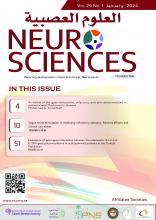8 November 2023 - Nearly 1 in 3 deaths from non-melanoma skin cancer is caused by working under the sun, according to joint estimates by the World Health Organization (WHO) and the International Labour Organization (ILO) published today. The research released in Environment International finds that outdoor workers carry a large and increasing burden of non-melanoma skin cancer and calls for action to prevent this serious workplace hazard and the loss of workers’ lives it causes.
According to the joint estimates, 1.6 billion people of working age (15 years or older) were exposed to solar ultraviolet radiation while working outdoors in 2019, equivalent to 28% of all working-age people. In 2019 alone, almost 19 000 people in 183 countries died from non-melanoma skin cancer due to having worked outdoors in the sun. The majority (65%) were male.
“Unprotected exposure to solar ultraviolet radiation at work is a major cause of occupational skin cancer,” said Dr Tedros Adhanom Ghebreyesus, WHO Director-General. “But there are effective solutions to protect workers from the sun’s harmful rays, and prevent their deadly effects.”
The estimates establish occupational exposure to solar ultraviolet radiation as the work-related risk factor with the third highest attributable burden of cancer deaths globally. Between 2000 and 2019, skin cancer deaths attributable to occupational exposure to sunlight almost doubled (increasing by 88% from 10 088 deaths in 2000 to 18 960 deaths in 2019).
“A safe and healthy working environment is a fundamental right at work,” said Gilbert F. Houngbo, ILO Director-General. “Death caused by unprotected exposure to solar ultraviolet radiation while working is largely preventable through cost-effective measures. It is urgent that governments, employers and workers and their representatives work together in a framework of well-defined rights, responsibilities and duties to reduce the occupational risk of UV exposure. This can save thousands of lives every year.”
From this research, WHO calls for more action to protect workers from hazardous outdoor work in the sunlight. As skin cancer develops after years or even decades of exposure, workers must be protected from solar ultraviolet radiation at work from young working age onwards. Governments should establish, implement and enforce policies and regulations that protect outdoor workers from sun-induced skin cancer by providing shade, shifting working hours away from the solar noon, providing education and training, and equipping workers with sunscreen and personal protective clothing (such as broad-brimmed hat, long-sleeved shirts and long trousers). Protective measures should be implemented when the ultraviolet index, a scale rating the amount of skin-damaging ultraviolet radiation, is 3 or higher.
WHO, ILO, the World Meteorological Organization and the United Nations Environment Programme recently launched the SunSmart Global UV App that outdoor workers can use to estimate their exposure to solar ultraviolet radiation.
In addition, measures to reduce skin cancer risks include raising workers’ awareness of when occupational exposure to solar ultraviolet radiation occurs and that it causes skin cancer, and by providing services and programmes to detect early signs of skin cancer.
Available from: https://www.who.int/news/item/08-11-2023-working-under-the-sun-causes-1-in-3-deaths-from-non-melanoma-skin-cancer--say-who-and-ilo
- Copyright: © Neurosciences
Neurosciences is an Open Access journal and articles published are distributed under the terms of the Creative Commons Attribution-NonCommercial License (CC BY-NC). Readers may copy, distribute, and display the work for non-commercial purposes with the proper citation of the original work.






